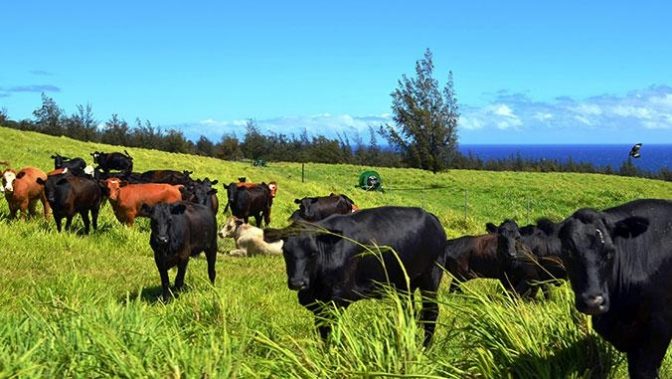By Staff Reports
(Hawaii)– Wagyu, a Japanese breed of cattle, produces high-quality meat prized by chefs the world over. Unfortunately for steak lovers, Wagyu are also known for having poor reproductive rates. University of Hawaiʻi at Mānoa’s College of Tropical Agriculture and Human Resources Extension Agent Kyle Caires is on a mission to change that.
Caires, who works in the Department of Human Nutrition, Food and Animal Sciences, recently took the next step in his long-term quest to improve the reproductive technologies of cattle with his paper, “The outcome and economic viability of production using IVF and SOV techniques in the Wagyu breed of cattle.”
Along with collaborators from Brazil and Washington State, Caires is combining econometrics (the application of statistical methods to economic data) with scientific outcomes. The goal is to implement the advanced reproductive technologies that are necessary for cattle producers to make rapid genetic improvements in a cost-effective manner.
“For local ranchers raising Wagyu, our research team developed a framework to nearly double pregnancy rates, at nearly 70 percent less cost than typical genetic improvement strategies—a true game changer for high-quality beef in Hawaiʻi,” said Caires.
Caires added, “There is a plethora of reproductive management programs out there to choose from, and it can get complicated and costly for ranchers, even overwhelming at times. Our team conducts applied research to help take the guesswork out of the process for beef producers. This will lead to improvements in cattle fertility and lower costs for genetic improvement. I’m excited to help our Hawaiʻi ranchers remain competitive in a dynamic, ever-changing global beef industry.”
Caires’s paper was published May 1 in Veterinary Sciences.

